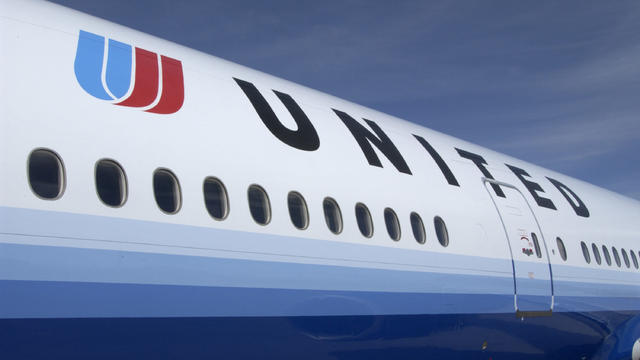United Airlines to put workers excused from COVID-19 shot for religious reasons on unpaid leave

United Airlines to put workers excused from COVID-19 shot for religious reasons on unpaid leave
United Airlines is giving five more weeks to employees who sought, but were denied, a company exemption from getting vaccinated against COVID-19 on religious or medical grounds. After that, they could be fired or put on unpaid leave.
The airline’s 67,000 U.S.-based workers face a September 27 deadline to get their shots. United says more than half its employees who weren’t vaccinated last month have done so since the company announced that vaccine requirements.
Requests for medical exemptions at United are judged by medical staffers including nurses, while requests for waivers based on religious beliefs are handled by personnel-office employees, according to the carrier.
Kirk Limacher, United’s vice president of human resources, made the statement about vaccinations Wednesday in memos to employees that spell out how United will handle requests for exemptions.
Under labor law, employers have the right to set their terms and conditions of employment — if a worker doesn’t comply, a company can give them the ax. This also applies for COVID-19 vaccinations, according to the Equal Employment Opportunity Commission.
Since the Food and Drug Administration in August gave full approval to the Pfizer-BioNTech vaccine, a growing number of U.S. businesses have started requiring employees to get inoculated.
United has taken the strongest pro-vaccination stance among U.S. airlines. Delta Air Lines says it will levy a $200 monthly surcharge on unvaccinated employees who are covered by the company’s health plan. Others including American Airlines say they will cut off paid leave for unvaccinated workers who contract COVID-19.
Different rules for different roles
United declined to say exactly how many employees have recently been vaccinated, what percentage of the workforce is now vaccinated, or how many workers requested a medical or religious exemption. The airline said that in most cases, employees who refuse to get vaccinated won’t be allowed into the workplace starting October 2
The process for handling workers whose exemptions are approved will vary slightly depending on the employee’s job. Employees who routinely come in contact with passengers, such as flight attendants, gate agents and pilots, and whose exemptions are approved, will face indefinite unpaid leave starting October 2. They won’t be allowed back on the job until the pandemic “meaningfully recedes,” according to one of the memos.
Employees who rarely deal with passengers — such as baggage handlers and mechanics — and whose exemptions are approved will also be put on leave, but only until the airline comes up with a plan for weekly COVID-19 testing and mandatory mask-wearing for them.
Employees at United’s Chicago headquarters whose exemptions are approved will be placed on leave until the airline decides on safety measures, including whether the person needs to come into the office.
Nearly half of U.S. workers support vaccine requirements at their workplaces, according to a poll by The Associated Press-NORC Center for Public Affairs Research. The survey shows that about 47% of those who are currently working in person favor vaccine requirements in the workplace. About one-quarter of workers — in person and remote — are opposed.
In explaining the rules to employees, United cited statistics on the state of the pandemic in the U.S., where new infections are at their highest level since March and “likely to rise into the fall as more people are hospitalized.” Most of the cases, hospitalizations and deaths are occurring among unvaccinated people, the memos said.
Eight in 10 economists said they are in favor of employers implementing COVID-19 vaccine mandates for employees returning to the workplace, according to a survey conducted by the National Association for Business Economics.



